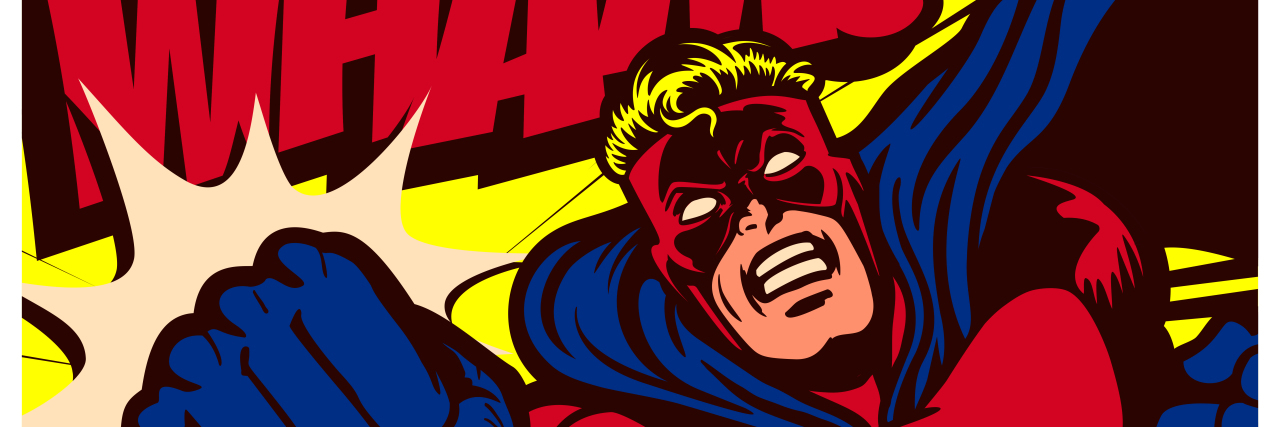Does a hero need to fly? Wear a utility belt? Shoot laser beams from his eyes?
Throughout history, mankind has been mesmerized by brave tales of heroism. From the early tribes who would huddle around the fire for warmth and protection and tell stories of strength and resilience, to modern movie-goers who sat in plush seats transfixed as powerhouse Thanos flung their favorite superheroes like rag dolls in stunning CGI combat in Marvel’s epic blockbuster “Avengers: Infinity War.”
Heroes elevate us from the hollow predictable to the glorious possible; they encourage us to improve ourselves and deepen our connections with others. Legendary writer Mark Twain noted, “If everyone was satisfied with himself, there would be no heroes.”
As I type this, I’m a 38-year-old guy living in Durham, North Carolina, USA. I have cerebral palsy, which causes spasticity (stiffness), chronic pain and limits my mobility. I frequently use either a walker or a power chair on the rare occasions I leave home. Throughout my life, invariably someone will approach me and say something like, “Good for you for getting out” or “I will pray for you!” or suggest I’m a hero for merely going about my day.
Admittedly, most of these people are well-intentioned; I’m good-natured about their curiosity, and there’s no animus. But sometimes it gets under my skin being hoisted onto someone’s pedestal. As we’ve witnessed the only thing society loves more than raising up heroes is knocking them down.
So, what’s the big deal? People are just being nice, right? On the one hand, yeah. One the other hand, it’s asserting my disability is something extraordinary or villainous that must be consciously and consistently overcome by heroic decisions and feats. That’s condescending and marginalizing.
What I want to convey, as crystal clearly as possible, is that a person’s disability is simply part of his or her identity. It doesn’t automatically make somebody a hero any more than it necessarily makes life a struggle. People with disabilities are people first. Their value lies in their unique identities, not in the number of hardships or hurdles to overcome. Disabled people aren’t any more heroic for existing in their bodies than anybody else. Calling someone heroic in this context is just the opposite side of the same coin as pity, and nobody wants that label.
It’s OK to be both mighty and mundane, forceful and fragile when slogging through the same experiences. Calling someone with a disability a hero doesn’t grant them any extra armor against the gut-wrenchingly tough experiences in life all humans must face. Sometimes in my life, I’ve felt disappointed I wasn’t living up to some ideal or standard set for me because of my disability. Don’t get me wrong: I truly want to set a good example for others. But, if I inspire others, let it be because of my thoughts, actions and empathy toward others rather than merely my cerebral palsy.
To play devil’s advocate, some might believe that people with disabilities should be spotlighted and praised as a method for advancing social awareness, reforms and legislation. From one perspective, there’s logic in this argument. But false praise is both harmful and unnecessary when we have accomplishments worth recognizing regardless of disability.
Trust me, I’m no hero. I’m just a guy, mighty and mundane, full of potential just like everyone else.
Getty image by Drante.

